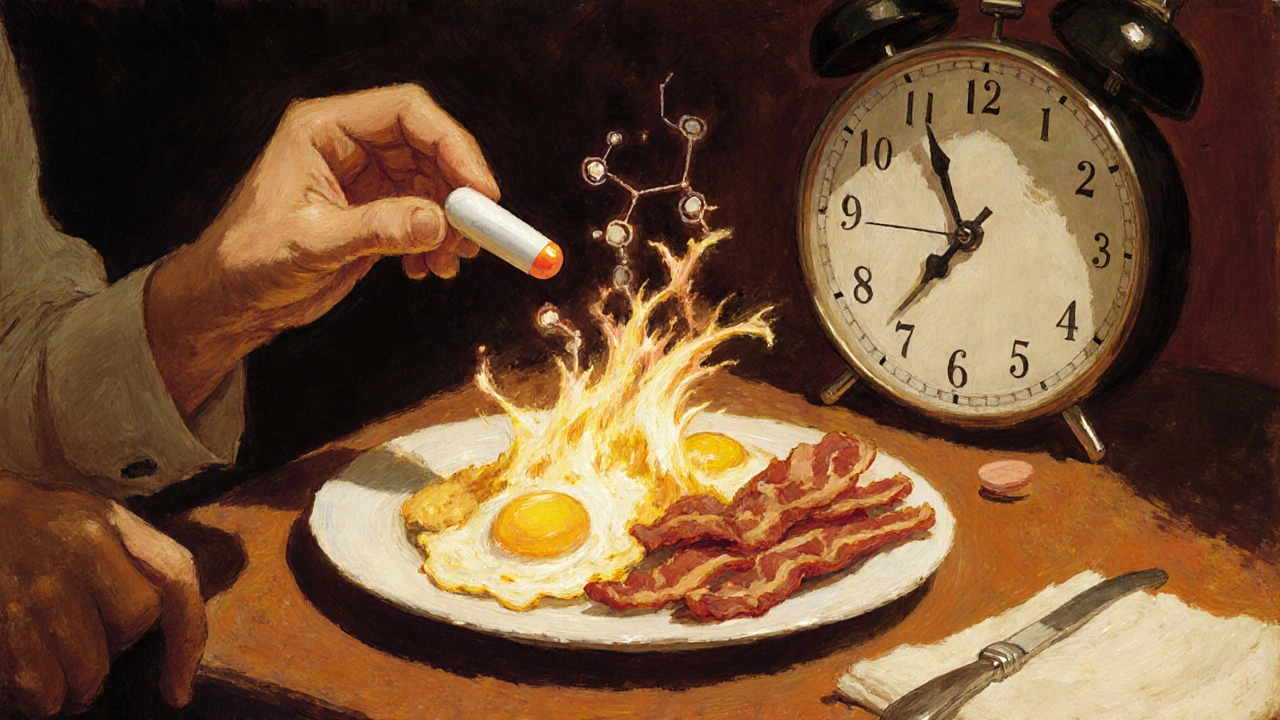Food-Drug Interactions: What You Eat Can Change How Your Medicines Work
When you take a pill, it doesn’t just act on its own—what you eat, drink, or even skip can change how it works in your body. This is called a food-drug interaction, a change in how a medication behaves because of something you consume. Also known as dietary drug interaction, it’s not just about grapefruit and statins—it’s everywhere, from your morning coffee to your evening snack. Many people think if they take their pill with water, they’re safe. But that’s not true. Some foods block absorption, others speed it up, and a few turn harmless drugs into toxins.
Take antibiotics, medications used to treat bacterial infections. Also known as antibacterial agents, they’re one of the most common culprits in food-drug interactions. Doxycycline won’t work if you take it with dairy—calcium binds to it and stops it from entering your bloodstream. Same with birth control pills, hormonal contraceptives that prevent pregnancy. Most people think all antibiotics ruin them, but only rifampin does. Still, if you’re on anything else, skipping food or drinking alcohol might still affect how well it works. Then there’s grapefruit, a fruit that blocks enzymes in your gut that break down drugs. Also known as citrus bergamia, it can turn a safe dose of a cholesterol drug into a dangerous overdose. It doesn’t matter if you eat half a grapefruit or drink a glass of juice—the effect lasts for days.
It’s not just about avoiding bad combos—it’s about knowing what to do instead. If your antidepressant makes you sweat too much, what you eat might be making it worse. If you’re on a diabetes drug and suddenly feel dizzy after lunch, it could be your carbs. Even something as simple as a banana with your blood pressure med can cause trouble if you’re on certain ACE inhibitors. The key isn’t to panic, but to ask: "What’s in this food, and how does it talk to my pill?"
What you’ll find below are real, practical guides that cut through the noise. From how SGLT2 inhibitors affect bone health to why TPMT testing matters before taking azathioprine, these posts don’t just list risks—they show you how to spot them, avoid them, and stay in control. You’ll see how weight changes from meds connect to what you eat, why switching to generics needs monitoring, and how even something like vitamin B6 can play a role in stress—and how that might clash with your prescriptions. This isn’t theory. It’s what people actually run into, and how to fix it.

Protein-Rich Foods and Medications: How Diet Affects Drug Absorption and Effectiveness
Protein-rich foods can reduce medication absorption by up to 50%, especially for drugs like levodopa. Learn how to time meals and meds for maximum effectiveness without sacrificing nutrition.
Read more